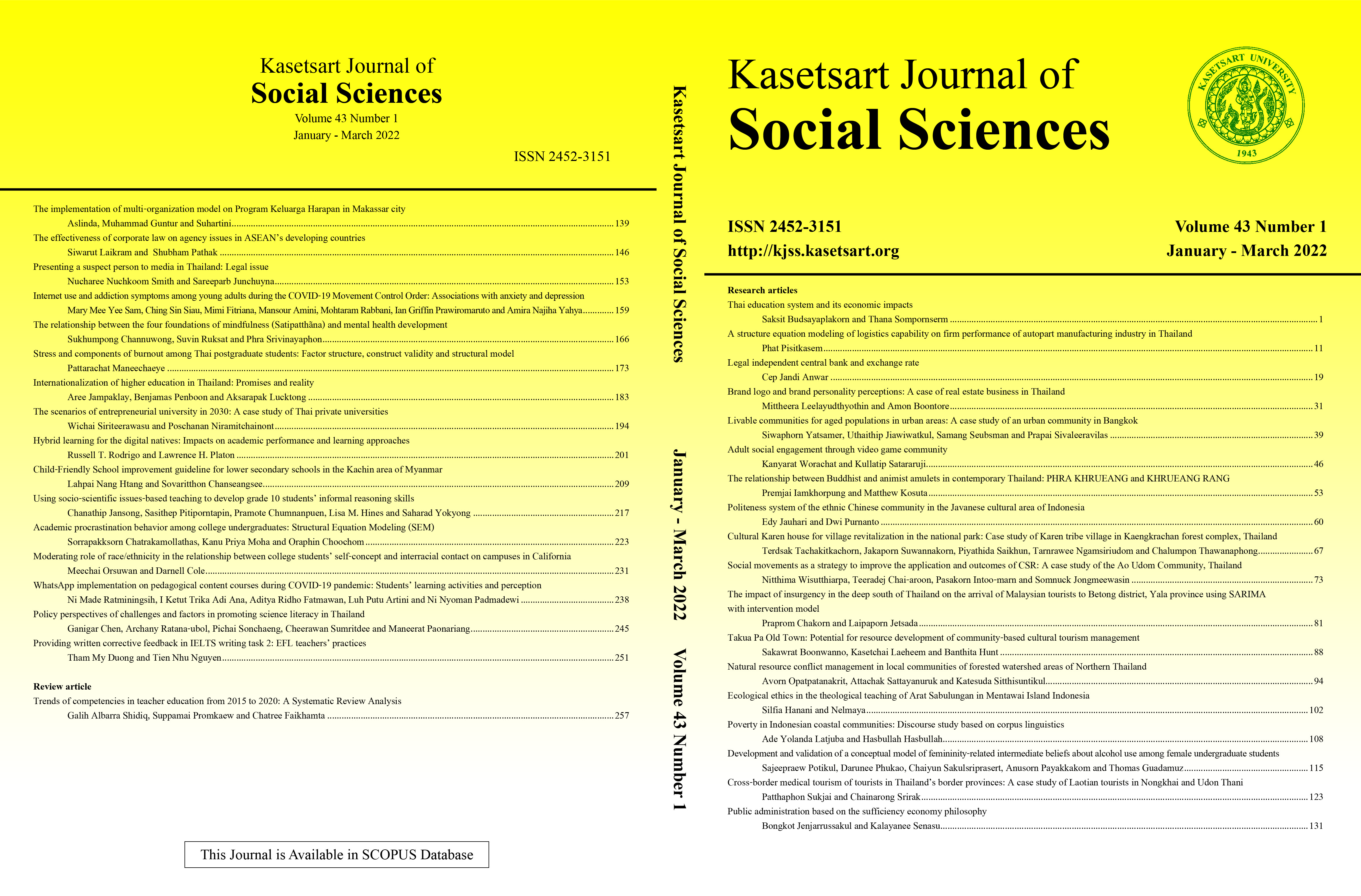Internet use and addiction symptoms among young adults during the COVID-19 Movement Control Order: Associations with anxiety and depression
Keywords:
anxiety, COVID-19, depression, internet addiction, young adultsAbstract
The disruptions caused by the COVID-19 pandemic lockdown have encouraged increased internet use and addiction among young adults. Past studies have indicated that internet addiction is often associated with depression and anxiety. The study aimed to examine the duration of internet use; estimate the prevalence of screening positive for internet addiction; and examine the influence of internet addiction symptoms on depression and anxiety. A cross-sectional survey was conducted. The survey incorporated the Internet Addiction Test (IAT), Generalized Anxiety Disorder 7-Item (GAD-7), Patient Health Questionnaire (PHQ-9), Rosenberg Self-Esteem Scale (RSE), and questions on the duration of internet use, time of sleep, and sleep duration. Data gathered from 226 participants (Mean age = 21.14 years; 62.8 percent females) revealed that the average duration spent online was 10.36 hours per day, approximately double the average duration reported in other pre-pandemic studies in Malaysia. The study also estimated that about 60 percent of the participants screened positive for internet addiction, in comparison to 36.9 percent in another prepandemic Malaysian study. Furthermore, young adults who slept later (1.00 am and after) were more likely to be addicted to the internet. Internet addiction symptoms were the most influential predictor of depression and anxiety. Future studies should include a larger sample size of young adults who are working or are unemployed, and carrying out a prospective longitudinal study could better document the effects of various stages of the COVID-19 pandemic on internet addiction.
Downloads
Published
How to Cite
Issue
Section
License

This work is licensed under a Creative Commons Attribution-NonCommercial-NoDerivatives 4.0 International License.
This is an open access article under the CC BY-NC-ND license http://creativecommons.org/licenses/by-nc-nd/4.0/










